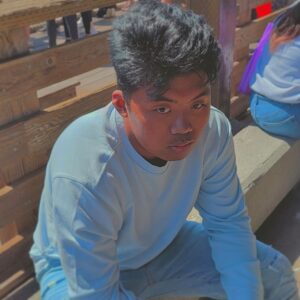
Image courtesy Gio Renegado, all rights reserved.
University of Alaska Southeast freshman Gio Renegado has always known about Wikipedia. But until he took a class with Professor Jonas Lamb, he didn’t know anyone could edit it. How did he learn this? By editing it himself, as a class assignment, with support from Wiki Education.
“I didn’t know that I was going to contribute to a free and massive library of information, he says. “I learned that there was a lot that goes into adding information to Wikipedia. There’s certain aspects when writing a Wikipedia article. There were a lot of rules and guidelines for writing on Wikipedia. For example, citations and plagiarism were taken very seriously. Misinformation can be spread across Wikipedia. But with the help of contributors and watchers, this can be prevented.”
Gio worked on two articles. One was personal: Filipinos in Alaska. As a Filipino who lives in Alaska, Gio learned about his community through working on the article.
“Contributing to this article opened my eyes on the history of my heritage and Alaska,” Gio says. “I didn’t know that Filipinos had an impact on Alaska, or the different Filipino community organizations across Alaska.”
Gio also worked on creating the start of an article on Indigenous connectivity in the United States.
“Gio’s contributions to the Filipinos in Alaska article demonstrated how the assignment enabled him to feel connected to his culture, family, community and history,” his professor, Jonas Lamb, says. “Additionally, through his work on a draft article on Indigenous Connectivity in the United States I could truly sense his increasing awareness of some equity gaps in our state (Alaska) and in society.”
Gio says he enjoyed writing for Wikipedia because it felt interactive, compared to a traditional assignment. Everything he wrote was available for the public to view — and help edit.
“My favorite part of Wikipedia is the fact that someone in the future may use my information for their own need,” he says. “For example, it helps them learn something new about a particular topic. I hope that someday someone will take my place and continue adding information to the articles I contributed to.”
This learning is exactly what Professor Lamb was hoping Gio and his classmates would get out of the Wikipedia assignment.
“Throughout the course we examined the rhetorical element of audience,” he says. “We identified and discussed the anticipated audience(s) for each piece of writing and asked how that particular audience might influence the posture taken by the writer, what information is given privilege, what is left out? Too many assignments ask undergraduates to write for a singular audience, the instructor. I wanted students to consider the impact their writing could have when shared with a broader audience while also recognizing the privileged position they occupy as college students with access to information, library collections, journal subscriptions, etc. and considering how their writing could contribute to the knowledge commons.”
To teach with Wikipedia, visit teach.wikiedu.org.
Image credit: The Alaska Landmine, CC BY 2.0, via Wikimedia Commons

Due to my class, I have also learned a lot about Wikipedia. Growing up I was always told not to trust it there’s fake information. You can’t just post random information on Wikipedia. You have to go through a whole system. It’s awesome as a students that we can have our input on a website.